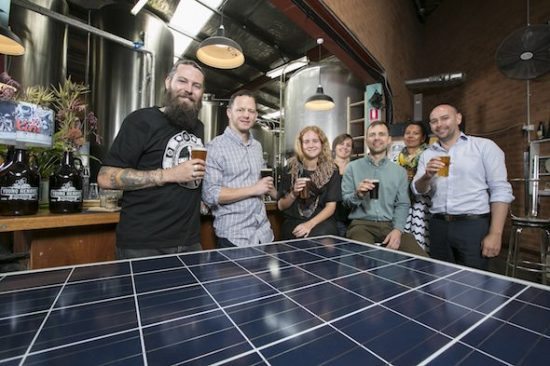‘Social change workers cannot pretend they have not seen what they have seen’
Gunya Resort success supports Titjikala community health & school retention
January 26, 2005Wonderful old vehicles, grassroots collaboration & a big party in Maffra
February 9, 2005Neighbourhood Houses, as agents of social change, work with local people in all sorts of communities, providing a friendly, welcoming atmosphere as well as a wide variety of classes and basic skills training needed by their community. One of the hardest emotions for social change workers to handle is helplessness, experienced in the face some community situations, says social change activist Fran Peavey. They cannot come in and ‘save the day’ nor can they pretend they have not seen what they have seen.
Kirsty Fiddian, a post graduate Regional Community Development student from inner Melbourne, had this feeling in 2003 when she met the volunteers, staff and refugees attending the Fitzroy Learning Network (FLN). In 2004, in conjunction with her course, she gathered a team of young professionals, in an attempt to ‘make a difference’ for some of the refugees. It was a ‘human’ gesture – they knew they would not ‘save the day’, but they also knew they would come to understand the situation free of journalistic and political hype and could pass this knowledge on to others.
A Temporary Protection Visa (TPV) usually lasts for about three years while the Government seeks information and considers the situation. This state of limbo is very difficult for TPV holders to endure, as they are usually separated from loved ones and live in constant fear that they could be suddenly be sent back to the country they fled from. One of the young men the team worked with described living on a TPV, saying “When you are frustrated you can bang your head against something solid,” he says, “but when you are on a TPV you are in the desert – there is nothing solid.”
TPVs may work but clearly cannot find work if they cannot speak English. English classes are a vital part of FLN’s help package for refugees, TPVs and asylum seekers. (FLN’s recognized success in this area has led to a collaborative effort with RMIT’s Centre for Applied Social Research to produce a model of best practice for providing support and assistance to refugees which can be used in other Adult Community Education Centres in Victoria.)
The quest to ‘make a difference’ started off with the idea of a ‘coffee table protest’ – a glossy book of photos presenting the plight of asylum seekers, the idea being that the book could both pass on information and bring in funds to help FLN assist refugees. Quite a few months passed while various ideas were researched. Surprisingly the team found that quite a few of their ideas had already been put into practice – mainstream media is not really interested in good news stories! Then a young journalist suggested turning the situation around and giving the TPVs disposable cameras so they could tell their own story. Yes… this would be a first! The team finally had a project. It was named ‘Through our eyes’.
‘Australia’s Pacific Solution’ a BBC production denied an airing on the ABC and SBS was screened to raise funds for the project. Final year photography students from RMIT volunteered to take portraits of the 14 contributing TPVs and two professional writers in the team wrote their stories to accompany the photos. The Start Community Art Space in Collingwood was booked and the exhibition was staged in December 2004, with many of refugees attending.
At the launch the gallery space was packed to hear FLN Coordinator Anne Horrigan-Dixon speak about the many ‘cups of tea’ needed to get such projects off the ground, and the really positive nature of the project which took us beyond politics to the human struggle to exist in a dehumanising environment. Anne’s passionate words were followed by a moving presentation from Actors for Refugees – there were many moist eyes.
The TPVs were really touched to see that some Australians saw them as more than just a number or a statistic, so they gladly gave their personal details and their time to help with the project. The depth of emotion was marked by a Christmas gift to Kirsty from a devout Islamist – a Christian nativity scene.
The exhibition ‘Through our eyes’ is available free to interested groups, subject only to arrangement for transport and set-up. You can contact Kirsty directly on 0412 279 044.

